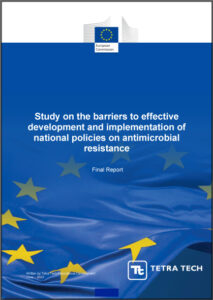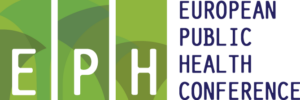
New wins
Tetra Tech conducting performance study of the Europe Direct network
Tetra Tech has been selected to conduct a study on the performance of Europe Direct, the European information network for EU citizens.
Over the course of 16 months, our team is conducting fieldwork in all 27 EU Member States to identify mechanisms that reinforce the network’s impact and where additional guidance and support is needed. With the upcoming elections of the European Parliament in June 2024, our study is set to cover a key period for the Europe Direct network, which consists of over 400 information centres across the European Union to engage with local with people, schools and media, and to answer general questions about EU institutions, funding and support opportunities.
Foresight study “Fishers of the Future”
Our EU team has also been awarded the foresight study “Fishers of the Future” by the European Climate, Infrastructure and Environment Executive Agency (CINEA).
As the Project Manager and main contact point for the client, we are supporting CINEA and the Directorate General for Maritime Affairs and Fisheries in exploring how the role and profession of fishers will change by 2050, and help anticipate the transformation of the fishing sector in the EU.
The findings we produce during the 14-month study, having started in October, will shape the collective understanding of all stakeholders – including citizens and policymakers – and lay the foundation for further communication, discussion, reflection and engagement by the European Commission.
Informing the EU Drug Precursors initiative
Tetra Tech is part of a consortium that will be conducting a study to support the EU’s aim to revise its current drug precursor regulations.
Commissioned by the European Commission’s DG GROW, in collaboration with DG TAXUD, the study will lay out options to address the challenges around drug precursors – chemicals that are used for illicit drug production but also have legitimate commercial uses in the manufacturing of medicines, cosmetics and fragrances.
Our work in focus
 Understanding the Barriers to Effective AMR Policies
Understanding the Barriers to Effective AMR Policies
Every year, 35 000 people die from antimicrobial-resistant infections in Europe. The European Commission is at the forefront of fighting this ‘silent pandemic’, having adopted its first strategy against anti-microbial resistance (AMR) in 2001, and most recently renewed its EU One Health Action Plan against AMR in 2017.
Tetra Tech has supported the Commission’s aim to prepare future policy initiatives and make the EU a best-practice region in tackling the threat. In our report, we highlighted common barriers that currently exist across EU countries and prevent the effective implementation of national One Health Action Plans against AMR. It provides a detailed analysis of barriers at policy, clinical and behavioural level, and identifies ways and best practice examples to overcome them.
You can read the full report here or by clicking on the image to the left.
 Our author team, Mariana Dates and Macarena Davies, were also pleased to share their findings at this year’s European Public Health (EPH) Conference in Dublin earlier this month. Under the theme Our Food, Our Health, Our Earth, a Sustainable Future for Humanity, the fight against AMR was one of the most prominent topics at the conference, recognising that the health of humans, animals, plants and the planet are all interlinked.
Our author team, Mariana Dates and Macarena Davies, were also pleased to share their findings at this year’s European Public Health (EPH) Conference in Dublin earlier this month. Under the theme Our Food, Our Health, Our Earth, a Sustainable Future for Humanity, the fight against AMR was one of the most prominent topics at the conference, recognising that the health of humans, animals, plants and the planet are all interlinked.
After hearing about the importance of reinforced EU animal health legislation and human health surveillance, our summary of the barriers faced at policy-level added to the event’s broader context to start looking for solutions that reduce the threat of antimicrobial resistance.